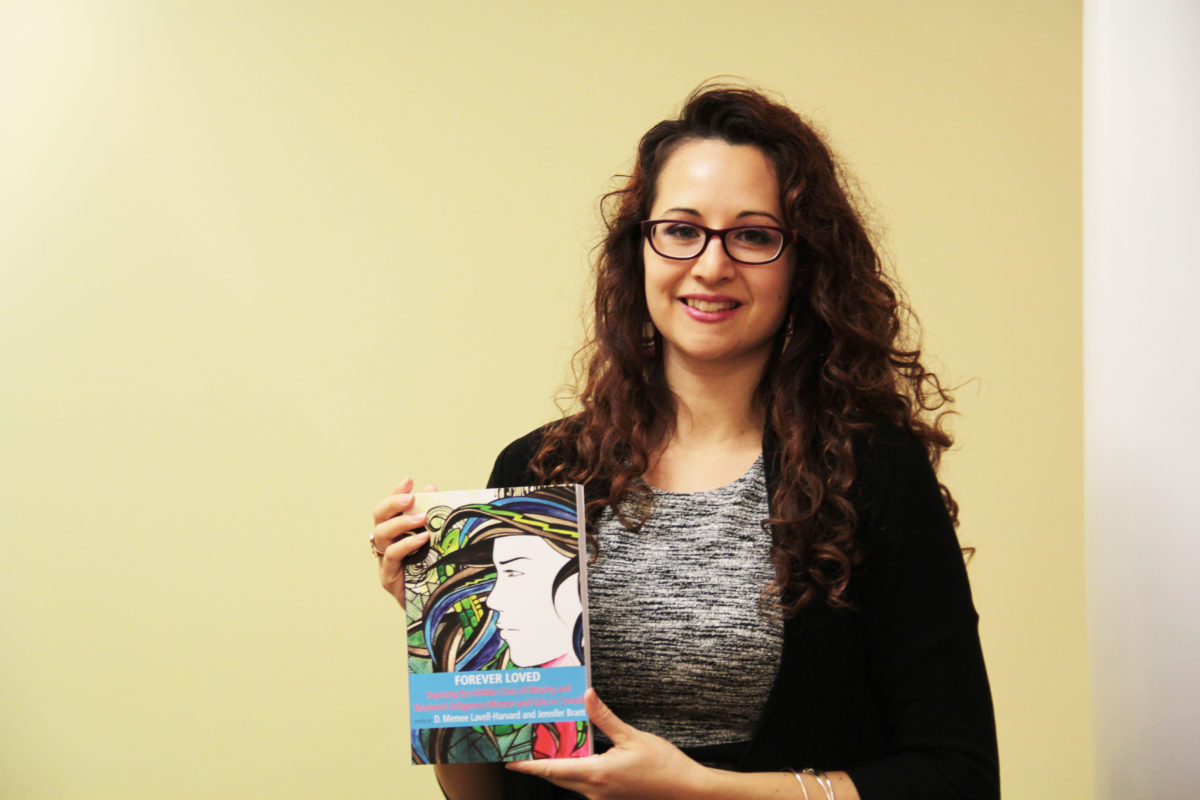
In a lecture at Kinsella Auditorium Thursday, Jennifer Brant said the issues surrounding missing and murdered indigenous women are a collective responsibility.
“[This is] not just an indigenous problem or a women’s issue, this is a national tragedy and a national shame.”
Brant is co-editor of the book Forever Loved: Exposing the Hidden Crisis behind Missing and Murdered Indigenous Women and Girls in Canada.
“[I wanted] to honour the stories of the indigenous women who’ve gone missing or murdered, so that they’re not just reduced to a statistic,” Brant said. “No matter who they are they all carry a story, and that story needs to be honoured in the way that we remember them and the way that we continue to honour them.”
Forever Loved is structured as a collection of academic essays, narratives, and poetry, and looks at the racialization and sexualization of indigenous women, the crisis from a sociological point of view, education and awareness of the subject and personal healing.
Brant discussed how indigenous women in prison, schools and those missing and murdered all faced the same level of risks, a trend that wasn’t typically seen in other demographics. These risks included a likelihood to face physical and sexual abuse, unemployment or sex work, and subjection to racism, discrimination, and sexualization by the media.
She said indigenous women also face a life expectancy 10 years lower than other women, and earn 30 per cent less when employed, are three times more likely to contract HIV, and five times more likely to die as a result of violence.
She further discussed the destruction of indigenous identity though methods like forced sterilization, residential schooling, and the loss of status when indigenous women married non-indigenous men, thus preventing them from moving back to their communities.
Brant also pointed out that recent RCMP documents reported 1,181 missing or murdered indigenous women and girls between years 1980-2012, though more cases are reported every month.
Along with the lecture, St. Thomas’s Women’s Studies and Gender Studies department is also responsible for the Red Dress Project around campus.
“Student awareness has really grown, and that awareness can deepen,” said Josephine Savarese, head of the campus’s project. “People can start to see themselves for agents of change.”
Savarese, who also contributed to Forever Loved, recommends students educate themselves, and gear their careers towards furthering justice for those adamant about making a change.
Brant said it is important for everyone to stay aware and work towards preventing this violence, otherwise it will be allowed to continue.
Brant further encourages university students to get as involved and educated as they can about the subject and other social concerns.
“For a healthy, fair, and equitable community it’s important for everybody to get involved and to speak out about this issue, and to understand this issue.”
